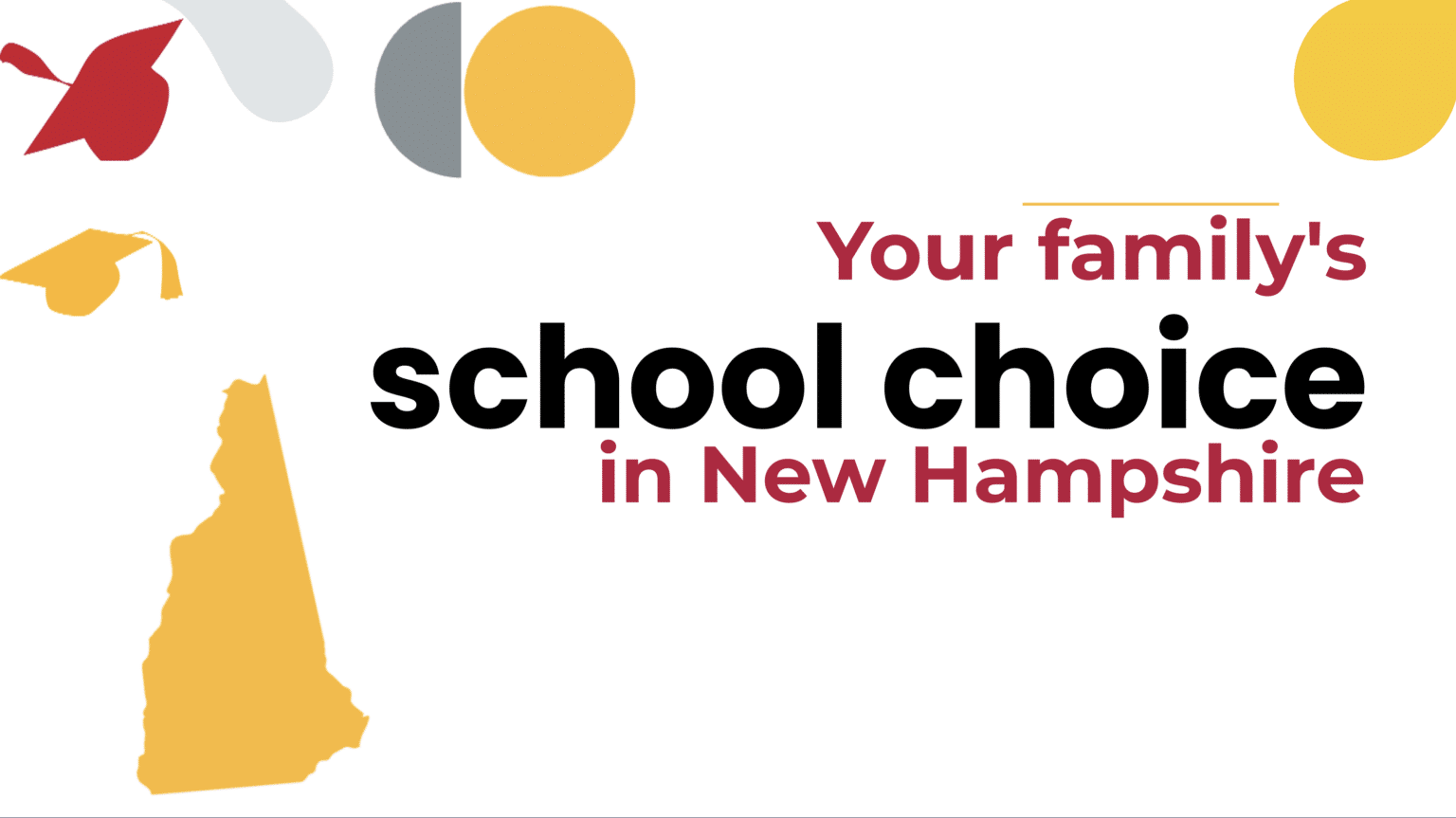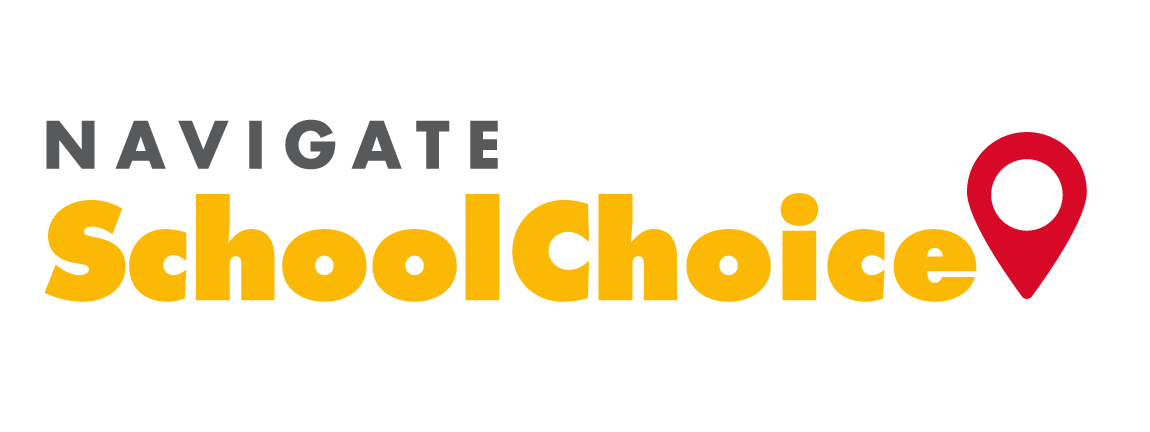Choosing a school? You’ve got options.
Each spring, parents face one of the biggest decisions they can make for their child’s future: What school environment will their child spend about 1,000 hours in next year? Let’s dive in to School Choice in New Hampshire.
Making that decision with confidence starts with knowing what options you have; you may have more school choices than you realize! Understanding these options can help you find a school where your child grows and learns to the best of their ability. New Hampshire families can choose from traditional public schools, public charter schools, public magnet schools, private schools, online learning, homeschooling, and microschooling and mix-and-match learning.
Looking for special education options? You can learn what special education services are available in New Hampshire at the Ultimate Guide to Special Education.

- Traditional Public Schools
- Public Charter Schools
- Public Magnet Schools
- Private Schools
- Online Schools
- Homeschool
- Microschooling
New Hampshire Traditional Public Schools
Most New Hampshire families (84.1% of all K-12 students) choose traditional public schools. Districts operate these schools, which are free to attend, open to all students, and funded by taxpayers. New Hampshire spends, on average, $19,433 per public school student each year. You can search your school’s spending and that of nearby schools at Project Nickel.
In New Hampshire, the state allows each district to set its own open enrollment policies. Open enrollment refers to whether parents can send their children to any public school, regardless of where it is located. New Hampshire parents wanting to transfer their child to a different public school than the one they are assigned should contact their local school district to see if this is an option. In 2021, the state made this process more defined for parents if their student is experiencing “manifest educational hardship.”
For a real-world example of the transfer process and timeline in New Hampshire, check out Kearsarge Regional School District’s guidelines for transfer requests. In general, if the public school of choice is within the same district, transportation is provided. If it is in a different school district, parents are responsible for transportation. Open enrollment is a valuable form of public school choice because it widens parents options, ensuring that their zip code isn’t the sole determiner of their education.
The largest public school district in the state is Manchester, which enrolled more than 12,000 students as of fall 2022. Find out more about public schools in your state at the New Hampshire Department of Education. You can also learn more at “Public Schools Without Boundaries: A 50-State Ranking.”
New Hampshire Charter Schools
Families in New Hampshire have another tuition-free option in charter schools. Like traditional public schools, charter schools are public, free, and usually have no requirements for entry. What distinguishes charter schools is that they have extra freedom to innovate with curriculum and learning methods. Public charter schools are accountable to authorizing entities, such as colleges or school districts, for results.
In New Hampshire, there are about 30 public charter schools that parents can choose from across the state. These served 5,530 (3%) students in 2022-2023. Each school has a charter which explains the school’s purpose and what specific community need it serves, whether that be providing a language immersion program or offering a rigorous, literacy-based curriculum. If there are more families seeking admittance to a charter school than there are seats, a lottery system is usually used to determine admittance.
The New Hampshire Department of Education is currently in the process of supporting an expansion of charter schools across the state. One of New Hampshire’s newest charter schools is Benjamin Franklin Academy, a middle-high school opening September 2023 with a history-centered, liberal arts curriculum.
Free transportation is available to most students who attend charter schools in New Hampshire and live within the district where their charter school is located. The state requires transportation to be provided by the district, upon a parent’s request. Students with special needs who have an Individualized Education Program (IEP) are eligible to receive transportation assistance.
You can learn about these options at the New Hampshire Alliance for Public Charter Schools.
New Hampshire Magnet Schools
Depending on where you live in New Hampshire, you may also be able to consider a magnet school. Magnet schools are free public schools that allow kids to narrow in on a specific learning track, such as engineering or the performing arts. At a magnet school, all the subjects are taught through the lenses of that specific track.
Maple Street Magnet School is currently the only magnet school we are aware of in New Hampshire. This magnet school’s unique focus is on community and sustainability. Students accepted to the Maple Street Magnet School through its blind lottery can choose to attend the magnet school rather than their neighborhood school.
New Hampshire Private Schools
Families in New Hampshire can also consider private schools, nonpublic schools that charge tuition. Private schools may offer a unique curriculum, smaller class sizes, or a faith-based tradition. New Hampshire’s more than 280 private schools come in all shapes and forms, from religious schools to schools designed for children with special needs.
Private school tuition can vary widely, but the state average is $11,601 for elementary schools and $28,426 for high schools. According to New Hampshire’s Town Tuitioning Program, if your town doesn’t have a district school at your grade level, your district will pay for your child to attend a public or private school in or outside of New Hampshire. As of 2021, this may include religious private schools.
In addition, students from a household where family income is less than 300 percent of the federal poverty level ($90,000 for a family of four in 2023) can apply to the state’s tax credit program. Recipients of the program receive scholarships to use for private school tuition, tutoring, or other educational expenses.
Since 2021, New Hampshire also offers an “Education Freedom Account” program. This flexible program allows low and middle-income students to receive education grants to customize their learning. The funds can be used to choose a private school, pay for tutoring or books, put toward educational therapy, and more. As of 2023, this program is open to students from a household where family income is less than 350 percent of the federal poverty level ($105,000 for a family of four in 2023.) More than 4,000 children currently participate in the program. About 3.2% of all K-12 students in New Hampshire participate in a private school choice program.
Learn more at the Children’s Scholarship Fund-New Hampshire, Catholic Schools of the Diocese of Manchester, and Private School Review: New Hampshire.
New Hampshire Online Learning
Online learning is sometimes overlooked, but it offers a uniquely flexible learning environment that meets a variety of family needs. Whether your child wants to accelerate his or her learning or needs a quieter environment in which to focus, you may be interested in giving virtual school a try.
New Hampshire elementary, middle, and high school students can take courses free of charge, full- or part-time, at Virtual Learning Academy Charter. If there will be a gap between attendance at a student’s previous school and their start at the virtual school, the student must file a notice of intent at their local public school. Homeschoolers can take up to six credits per year through the Virtual Learning Academy Charter.
One feature that makes the Virtual Learning Academy Charter unique is that it is mastery-based: students progress based on mastery of learning content, rather than a fixed schedule.
To read more about online learning in New Hampshire, check out the Digital Learning Collaborative’s state profile.
New Hampshire Homeschooling
You can also choose homeschooling, the process of parents educating students at home. Homeschooling is permitted in all 50 states and allows for a highly personal and customizable learning experience.
In New Hampshire, 1.6% of all K-12 students are homeschooled. It is required that you provide notice of your intent to homeschool within 5 days of starting and/or if you move to a new school district. It is recommended that you formally withdraw so your student is not marked truant. If you decide to stop homeschooling, you must file a written notice of termination. In the case that you decide to return to public school, your student’s placement will be determined based on the documentation you provide.
The state requires homeschooling parents to teach specific subjects (including science, math, reading, and government) and also requires some level of assessment of homeschooled students. In New Hampshire, your homeschooled student might still be eligible to participate in sports or activities at the local public school – contact your district if you are interested in this option.
Homeschoolers may be eligible* to apply for New Hampshire’s “Education Freedom Account” program, which allows low and middle-income students to receive about $4,700 of funds to customize their education. The funds can be used for tutoring or books, educational therapy, and more. In 2023, eligibility for the program was expanded – now students from families earning up to 350% of the federal poverty line can apply.
*Families currently participating in home education must terminate their home education status before applying for the EFA. Participation in the EFA program requires participants to be enrolled in a non-public school that complies with state regulations. In practice, this can still include educating children at home, but comes with a different legal status and relationship with a scholarship organization, that true “homeschooling” does not. For more information, check out Children’s Scholarship Fund’s FAQ‘s.
For more, check out a how-to about homeschooling in New Hampshire.
New Hampshire Microschools and Mix-and-Match Learning
Today, some New Hampshire families are mixing and matching school options to come up with new ways to personalize education. Microschools are one of these ways. A microschool refers to students gathering together in a small group – with adult supervision – to learn, explore, and socialize. Microschools can take a variety of shapes and legal forms, from homeschoolers coming together at an enrichment center to a private school committed to small classrooms. What microschools share in common is a commitment to small-group learning and close-knit relationships, along with an emphasis on children as individual learners.
Here are real examples of microschools and related resources in New Hampshire:
Latitude Learning Resources offers enrichment programs — from Lego clubs to language classes — for homeschoolers in Derry.
New Hampshire’s Learn Everywhere initiative aims to allow high school students to gain high school credits outside of schools, through community activities and extracurriculars.
nLighten Learning provides small learning pods for both homeschoolers and students enrolled in accredited virtual schools, focusing on individualized, mastery-based education in a nurturing environment.
In New Hampshire, some school districts have partnered with Prenda to offer district-run Learning Support Groups. These groups served about 100 students in the 2021-2022 school year.
For homeschool students and virtual school students in New Hampshire, KaiPod Learning offers free Learning Support Groups. Students attending “KaiPods” receive opportunities to socialize, collaborate, and receive educational support while completing their chosen curriculum.
The Harkness House caps classes at 12 students and offers a student-led curriculum that aims to foster discovery and life-long learning.
New Hampshire’s state commissioner of education has said that learning pods are permitted by New Hampshire law and families may have family members or friends supervise children in the parent’s absence.
Remember, microschooling is more a mentality than a specific legal distinction in most cases. Often, a family participates in a microschool while legally homeschooling, or being enrolled in a private or online school.
[nscw_school_finder]
Learning Pods
How can it empower parents and help kids achieve their dreams?
7 Step Guide
Tips to help you find a school where your daughter or son will learn, succeed, and be happy.
Education Resources for
New Hampshire Parents
For additional information about school choices in New Hampshire, visit these resources:
Every state is different when it comes to school choice options.
Sign up below to get a detailed comparison:
"*" indicates required fields

